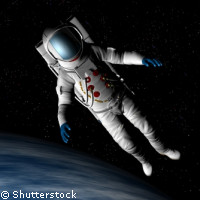Wanted: highly-motivated applicants for human space flight
The European Space Agency (ESA) has announced that it is to recruit a new batch of astronauts to take part in future missions to the International Space Station (ISS), the Moon and beyond. This is the ESA's fourth astronaut selection process in 30 years, and comes 16 years after the previous recruitment drive, which provided the human resources for the Columbus laboratory project aboard the ISS. Now, new recruits are needed to take part in human spaceflight of the 21st century, which may include missions to the Moon and the further exploration of our solar system. Other world powers are already preparing for these missions. Possessing an operational astronaut corps is therefore an essential strategic asset if Europe is to take part in this endeavour, says the ESA. 'Europe has long been involved in exploration, even before the days of Christopher Columbus,' said Daniel Sacotte, ESA's Director of Human Spaceflight, Microgravity and Exploration. 'After exploring the Earth, space is the logical next step - and a new generation of explorers are needed to follow their illustrious predecessor Columbus and embark for those new worlds. I am therefore very pleased that at the beginning of 2009, we will be welcoming a new intake of men and women to the European Astronaut Corps to undertake missions to the ISS and beyond,' he added. The process, which is to begin on 19 May, will be open to men and women from the 17 ESA member countries. According to the ESA, the ideal candidate should be competent in relevant scientific disciplines, including but not restricted to life sciences, physics, chemistry and medicine. Candidates can also be engineers or pilots, and should demonstrate outstanding research and operational skills. Furthermore, those interested in applying should be fluent in English (Russian is also an asset) and should exhibit personality traits such as high motivation, flexibility, team competence, empathy with others and emotional stability. Other sought-after skills include a good memory and reasoning ability, concentration, aptitude for spatial orientation, and manual dexterity. The recruitment process comprises several phases. In the first phase, applicants will be asked to provide a medical certificate; the examination must be conducted by an Aviation Medical Examiner that is certified by his/her national aviation medical authority. If given the all-clear, applicants will then undergo two stages of psychological and professional aptitude evaluation, including behavioural and cognitive skills tests. This will be followed by a medical evaluation, which includes a clinical examination by aero-medical physicians and clinical specialists, laboratory screening tests, and special procedures. Any applicants that get this far will then go before an ESA selection board for a formal interview and professional assessment. The final appointments will be announced in 2009. The recruitment campaign will kick off with a series of conferences to be held in ESA member countries, where would-be applicants can meet with astronauts.



